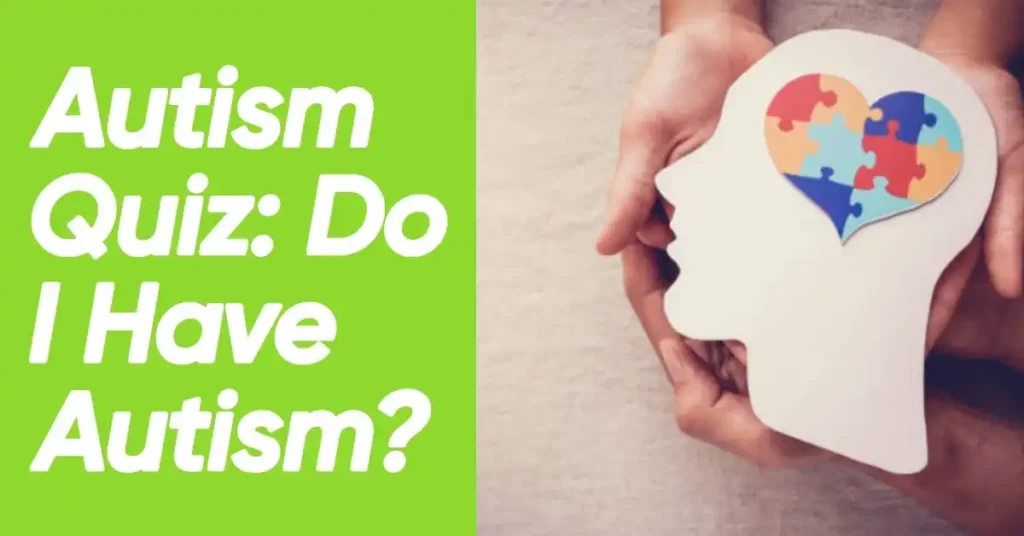Autism, often referred to as Autism Spectrum Disorder (ASD), is a complex and neurodevelopmental condition that manifests in diverse ways among individuals. It is characterized by unique patterns of behavior, challenges in social interaction, and differences in communication. Autism affects how individuals perceive and interact with the world around them.
The National Institute of Neurological Disorders and Stroke (NINDS) offers valuable information about ASD and its prevalence, impacting roughly 1 in 54 children in the United States.
Our Autism Spectrum Quotient – AQ Test is a self-assessment tool designed to help individuals gain insight into their autism traits and tendencies. This comprehensive quiz can shed light on your unique characteristics and provide valuable information about your place on the autism spectrum.
The AQ Test was developed by Simon Baron-Cohen, a renowned psychologist, and researcher in the field of autism spectrum disorders. It comprises a series of carefully crafted questions that explore various aspects of behavior, interests, and social interactions.
By taking this quiz, you can gain a better understanding of your own autism-related traits. Recognizing the extent of these traits in yourself or someone you care about is essential for tailoring support and interventions. Today, we invite you to explore and assess your autism trait level through our Autism Spectrum Quotient – AQ Test.
Quiz: Autism Spectrum Quotient – AQ Test
Our Autism Spectrum Quotient – AQ Test consists of 25 questions that cover a wide range of topics, including social interactions, communication preferences, and sensory experiences. By completing this quiz, you can gain insights into your unique traits and better understand your potential place on the autism spectrum.
Who Is This Quiz For?
Autism Spectrum Quotient – AQ Test provided by Illnesstests is suitable for anyone interested in gaining a deeper understanding of their autism-related traits. Whether you suspect you might be on the autism spectrum or simply wish to explore your unique characteristics, this quiz is a valuable tool for self-discovery.
Is This Quiz Accurate?
While this quiz can provide valuable insights, it’s important to note that it is a self-assessment tool and not a diagnostic instrument. For an official diagnosis of autism spectrum disorder, it’s crucial to consult with a qualified healthcare professional. However, the AQ Test can offer valuable information and serve as a starting point for self-reflection.
Why Is It Worth Taking?
Taking our AQ Test can be a transformative experience. It can help individuals recognize and embrace their unique qualities, fostering self-acceptance and understanding. Additionally, it can be helpful in accessing the level of autism traits that an individual may possess.
Below, You’ll Find a 25-Question Based Quiz Designed to Help You Determine Your Autism Trait Level. To Obtain Most Accurate Results, Please Answer Each Question Honestly.
Important Notice: This self-assessment quiz measures the level of Autism Traits you may exhibit; however, it does not provide a definitive diagnosis for Autism. For a comprehensive assessment of Autism, please consider taking our Autism Spectrum Disorder (ASD) Quiz.
What about Results?
Upon completing the AQ Test, you’ll receive a score that indicates the level of autism traits you may possess. Remember that this score is for self-reflection and should not be considered a definitive diagnosis. It’s a valuable tool for self-awareness and personal growth.
How Do I Self-Check for Autism Trait Level?
When taking the AQ Test, consider the following 10 questions for self-check:
- Do I find social interactions challenging or overwhelming?
- Am I sensitive to sensory stimuli like lights, sounds, or textures?
- Do I have strong interests or obsessions?
- Is it difficult for me to understand non-verbal cues in conversations?
- Do I prefer routines and find change unsettling?
- Am I highly focused on specific topics or activities?
- Do I struggle with sarcasm or figurative language?
- Is maintaining eye contact uncomfortable for me?
- Do I have difficulty with spontaneous or unstructured social situations?
- Am I prone to repetitive behaviors or routines?
Causes of Autism
The exact causes of autism spectrum disorder (ASD) are still under investigation, but they are believed to include:
- Genetic factors, with certain genes playing a role.
- Environmental factors, such as prenatal exposures.
- Abnormal brain development, which can affect communication and social interaction.
Symptoms of Autism
Autism spectrum disorder can manifest in various ways, including:
- Challenges with social interaction and communication.
- Repetitive behaviors or routines.
- Sensory sensitivities or aversions.
- Strong, focused interests or obsessions.
- Difficulty with understanding non-verbal cues.
Treatment
While there is no cure for autism spectrum disorder, early intervention and a tailored treatment plan can help individuals develop essential skills and improve their quality of life. Treatments may include behavioral therapies, speech and language therapy, and educational support.
Self-Help Tips
After taking the AQ Test, consider the following self-help tips:
- Seek support from autism support organizations and online communities.
- Develop a routine that provides structure and predictability.
- Practice social skills and communication through therapy or training.
- Embrace your unique strengths and interests.
- Manage sensory sensitivities with coping strategies.
- Advocate for your needs in various social and educational settings.
Conclusion
Our Autism Spectrum Quotient – AQ Test offers a valuable opportunity for self-discovery and self-acceptance. By gaining insights into your unique traits, you can embark on a journey of personal growth and understanding. Remember that the AQ Test is not a diagnostic tool but a means to explore your individuality and embrace your place on the autism spectrum.
Article Tags: Autism Spectrum Quotient (AQ) Test | Know Your Autism Trait Level | AQ Test | AQ Test For Autsim | Autism Quotient Self-Assessment | Autism Trait Level Quiz | AQ Test Scoring | AQ Test Results | Autism Causes | Autism Symptoms | Autism Treatment | Autism Self-Help Tips
Frequently Asked Questions? (FAQ’s)
1. What is Autism Spectrum Quotient – AQ Test?
The AQ Test is a self-assessment tool designed to measure autism-related traits in individuals.
2. Is this AQ Test a diagnostic tool for autism spectrum disorder (ASD)?
No, it is not a diagnostic tool. It assesses traits associated with autism but cannot provide a formal diagnosis.
3. Who can take this AQ Test?
Anyone can take the AQ Test to gain insights into their own autism traits. It’s often used by individuals curious about their neurodiversity.
4. How does this test work?
Our Autism Spectrum Quotient (AQ) Test consists of a series of questions that you answer to determine the extent of your autism-related traits.
5. What do the results of this AQ Test indicate?
The results provide an indication of the presence and extent of autism traits in the individual but do not provide a formal diagnosis.
6. Is a high score on this AQ Test a cause for concern?
A high score simply suggests the presence of certain traits but does not imply a problem or diagnosis.
7. How can I interpret my AQ Test results?
Interpretation should be done in consultation with a qualified healthcare professional who can provide guidance and context.
8. What should I do if I have concerns after taking this AQ Quiz Test?
If you have concerns about your results or believe you may be on the autism spectrum, consider seeking an evaluation and diagnosis from a healthcare professional.
9. Is this AQ Test a valid measure of autism traits?
The AQ Test is a widely used self-assessment tool, but it is not a substitute for a comprehensive evaluation by a healthcare provider for diagnosing ASD.
10. How long does it take to complete the AQ Test?
Our AQ Test typically takes around 5 to 10 minutes to complete. It is a one-time assessment, and your results reflect your traits at the time you took the test. You can retake it if you wish to assess any potential changes over time.
Last reviewed for medical accuracy on September 22, 2023. We continually update the content to reflect the latest healthcare advancements, ensuring reliable information for our readers on Illnesstests.

